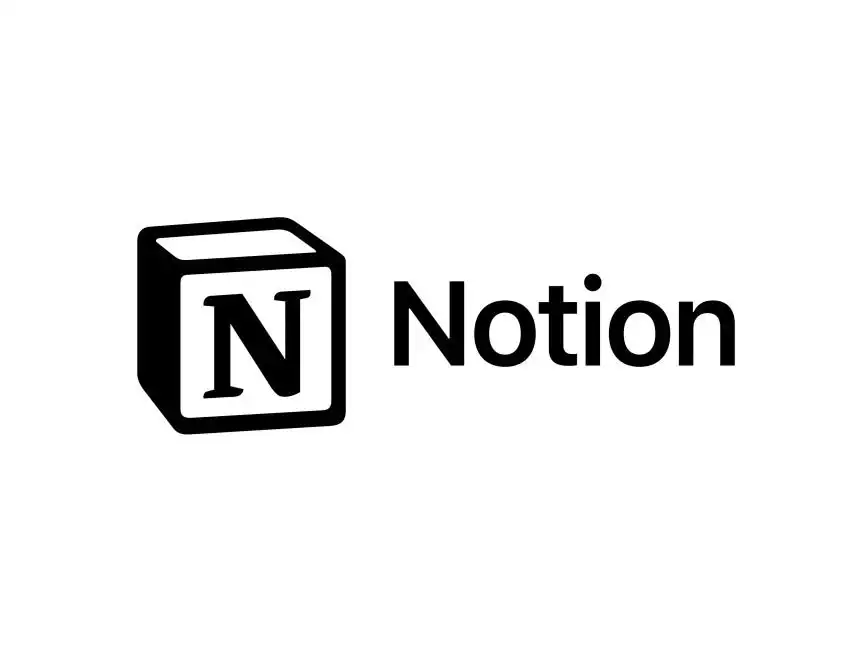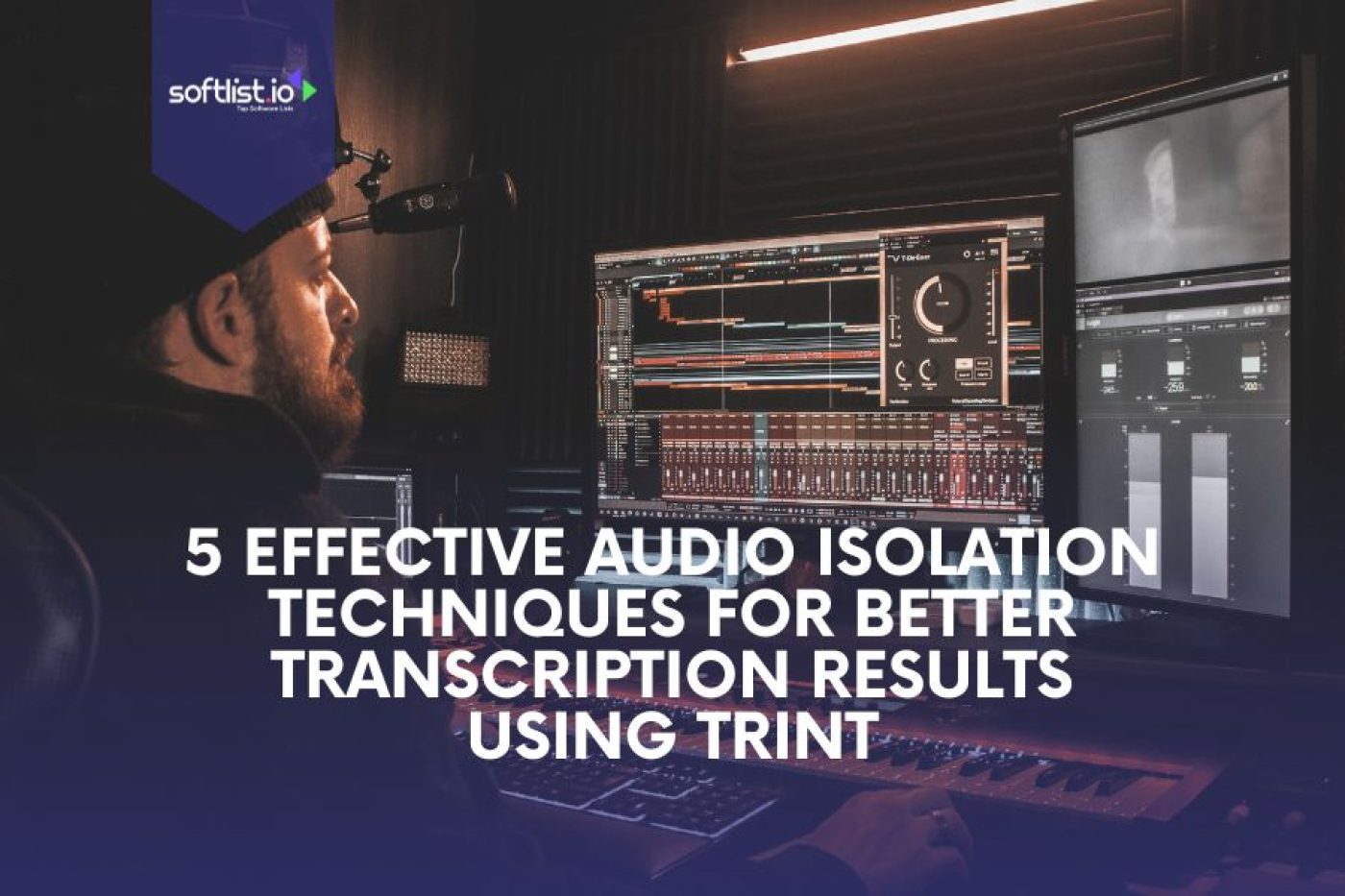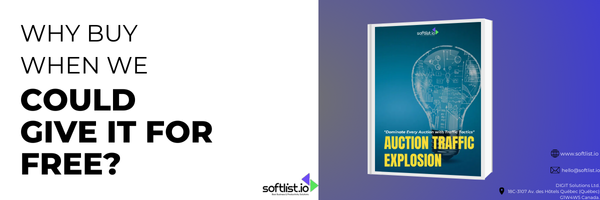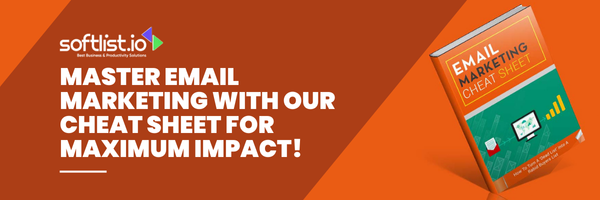Selecting the right email marketing software platform is crucial for businesses looking to streamline communication, nurture leads, and drive conversions. With marketing automation features, businesses can create personalized campaigns, send responsive emails, and track engagement in real time.
However, not all platforms offer the same features, like email scheduling, making it essential to evaluate key criteria before choosing a solution. A powerful email platform should provide automation, a user-friendly design, and the ability to send unlimited messages like email without restrictions. As the industry evolves, businesses need a tool that adapts to their needs and enhances their strategy.
If you’re looking for an efficient way to scale campaigns, improve engagement, and maximize ROI, these 12 criteria will help you find the best fit for your business keep reading to make the right choice.
Key Takeaways
- A reliable email marketing platform should offer robust features, including automation and segmentation, to streamline email sending and improve campaign performance.
- Choosing an effective automation platform as part of your email marketing package ensures personalized engagement, helping businesses efficiently connect with customers at scale.
- The right marketing hub integrates seamlessly with other business tools, enhancing workflows and optimizing email campaigns for better audience targeting and conversion rates.
Points to Look for in an Email Marketing Program

Email marketing involves sending marketing messages to a group of people using email. It is a type of direct marketing in which companies use email promotions to contact their target population and advertise their goods or services.
To start an email marketing campaign, businesses typically use email marketing software to create, send, and track their messages. The software allows businesses to manage their email lists, design and customize emails, schedule campaigns, and track performance.
Choosing the best email marketing software is critical for any company seeking to expand its web footprint, increase revenue, and connect with consumers. To ensure you select the best email marketing software for your needs, consider the following 12 criteria:
Criteria 1: Automated List Segmentation

Automated list segmentation is a powerful feature in modern email marketing services, allowing you to grow your email list by targeting subscribers based on demographics, behavior, purchase history, and engagement levels. This ensures the right information reaches the right person at the right time, leading to higher engagement and increased sales.
The software should offer an intuitive drag-and-drop email builder along with marketing automation capabilities to set up and manage dynamic segmentation rules. It should also allow you to monitor segments over time, automatically adding or removing subscribers based on their actions. With many platforms available, selecting one that supports advanced segmentation can greatly enhance your newsletters and email campaigns.
A reliable platform should also include unlimited email sending and an efficient delivery system to ensure your segmented campaigns reach the right inboxes. When combined with social media marketing strategies, effective email marketing can take your business to the next level.
Criteria 2: Design Customization Capabilities

TThe design of your emails plays a critical role in their success, as it can impact their ability to capture the attention of your subscribers and convey your message effectively. Therefore, your email marketing software should offer design customization capabilities that allow you to create visually appealing and on-brand emails without requiring extensive coding skills.
Design customization capabilities should include a range of templates customizable to your branding, including color schemes, fonts, and imagery. The software should also provide easy-to-use editing tools, such as a drag-and-drop editor, that allow you to create visually appealing emails without requiring technical expertise.
The software should allow you to customize every aspect of your email, including the header, footer, body, and call-to-action buttons. Additionally, the software should offer responsive design options, ensuring your emails look great on all devices, including smartphones and tablets.
Criteria 3: Drag-and-drop Editor

An advanced drag-and-drop editor is a key feature for email marketing use, simplifying email creation and allowing businesses to design visually appealing messages without technical expertise. The editor should offer an intuitive interface that lets you drag and place elements like text, images, and icons, ensuring engaging content for your audience.
With real-time customization, you can adjust layouts, apply color schemes, and refine designs effortlessly. A marketing platform with an attractive interface should also integrate with automation workflows, enabling AI-powered email marketing to trigger personalized emails based on user behavior.
To further streamline the process, access to pre-built templates and easy-to-use editing tools, such as image resizing, enhances efficiency. Whether you’re looking for a suite of marketing tools or an editor that ensures professional-quality emails, it’s essential to look at the best email platforms that make crafting compelling campaigns seamless via email.
Criteria 4: A/B Testing and Split Testing

A/B testing and split testing are essential features for any email marketing strategy because they enable you to test various variations of your emails to see which is most successful at reaching your goals. Therefore, your email marketing software should allow you to conduct A/B testing and split testing easily.
A/B testing involves sending two versions of an email to a small portion of your email list to determine which version performs better. The winning version is then sent to the remaining portion of your email list. Split testing involves testing different elements of an email, such as subject lines, call-to-action buttons, or images, to determine which version drives the most engagement.
The email marketing software should provide easy-to-use tools for conducting A/B testing and split testing, including the ability to set up different versions of an email, set up testing criteria, and track and analyze results. The software should also allow you to automate the testing process, saving you time and effort.
Criteria 5: Support for Multiple Languages

If your business operates in multiple countries or markets, selecting one of the best email marketing services with multilingual support is essential. This ensures you can design and send emails in different languages, making it easier to engage with subscribers across various regions and maximize the value of email communication.
The software should feature an easy-to-use editor with responsive email templates, allowing you to create and manage multilingual emails seamlessly. It should also enable segmentation based on language preferences, ensuring each subscriber receives personalized content in their preferred language, which enhances core email marketing strategies.
Additionally, comprehensive onboarding services can streamline the setup process, guiding you through multilingual campaign creation and list segmentation. Integrating with eCommerce platforms like Shopify or WooCommerce further strengthens your email marketing efforts, ensuring a smooth customer experience.
By using an email marketing platform with multilingual support, you can personalize communication, increase engagement, and scale your marketing into new global markets—starting with a localized welcome email that makes every subscriber feel valued.
Criteria 6: Integration with CRM Systems

Integration with customer relationship management (CRM) systems is critical for email marketing software. A CRM system helps businesses manage customer interactions and relationships, providing insights into customer behavior and preferences.
Your email marketing software should integrate seamlessly with your CRM system, allowing you to import and manage customer data effectively. In addition, the integration should enable you to sync customer data, such as contact information, purchase history, and engagement levels, between the two systems.
By choosing email marketing software that integrates with your CRM system, you can create more targeted and personalized email campaigns that resonate with your customers, increasing engagement and higher conversions.
Criteria 7: Robust Tracking and Analytics Capabilities

Effective email marketing requires tracking and analyzing your campaigns’ performance to understand what works and what doesn’t. The email marketing software you choose should provide robust tracking and analytics capabilities, empowering mail marketers to measure success and identify areas for improvement while following best practices for campaign optimization.
The software should offer comprehensive statistics and real-time monitoring of key metrics, such as open rates, click-through rates, and conversions. These reports should be easy to interpret and provide actionable insights, helping you get started with data-driven decisions to enhance your campaign performance.
In addition, the software should enable advanced segmentation, allowing you to analyze performance by different criteria, such as location, age, or purchase history. This level of detail helps identify patterns in your audience’s behavior, making it easier to create more targeted and effective campaigns.
To further amplify your outreach, consider integrating SMS marketing alongside email campaigns. This multi-channel approach ensures you connect with your audience through their preferred platforms, boosting engagement and overall results.
Criteria 8: Ability to Generate Dynamic Content

Dynamic content is email content that changes based on the recipient’s preferences, behavior, or other factors. Dynamic content is highly personalized and relevant, increasing engagement and conversions.
The email marketing software you choose should provide the ability to generate dynamic content, allowing you to create highly personalized email campaigns. In addition, the software should provide easy-to-use tools for creating and managing dynamic content, including inserting dynamic elements into email templates, such as product recommendations, location-based content, or personalized images.
Criteria 9: Support for Personalized Content

Personalization is essential for effective email marketing. Therefore, the email marketing software you choose should support personalized content, allowing you to tailor your messages to individual recipients based on their interests, behavior, or other factors.
The software should provide tools for collecting and analyzing data on your subscribers’ preferences, such as browsing and purchase history, location, and email engagement. With this data, you can create personalized content, such as product recommendations, promotional offers, or personalized subject lines and greetings.
The software should also provide easy-to-use tools for inserting personalized content into your email templates, allowing you to create highly relevant and engaging email campaigns that resonate with your audience.
Criteria 10: Multi-channel Marketing Features

Email is just one channel in your marketing mix. To reach your audience effectively, you must engage with them through multiple channels, such as social media, SMS, or push notifications. Therefore, the email marketing software you choose should provide multi-channel marketing features, allowing you to manage all your campaigns from a single platform.
The software should provide easy integration with other marketing channels, allowing you to create cross-channel campaigns that deliver a consistent message across all touchpoints. It should also provide tools for tracking and analyzing campaign performance across all channels, allowing you to measure the impact of each channel on your overall marketing efforts.
By choosing email marketing software with multi-channel marketing features, you can create cohesive and effective marketing campaigns that engage your audience across all channels, resulting in increased visibility, engagement, and conversions.
Criteria 11: Accessibility on Mobile Devices

More than half of all emails are opened on mobile devices, so your email service must be mobile-friendly. The software should offer mobile-optimized templates that look great on small screens and provide an excellent user experience. A user-friendly drag-and-drop email editor can help businesses design professional emails with ease.
Additionally, consider whether your email marketing software integrates with in-person interactions, like events or conferences, to ensure a seamless customer experience across all touchpoints. An automation tool for small businesses can streamline these processes, making email marketing more efficient.
The software should also include tools for testing and previewing emails on mobile devices. With reliable email support, users can troubleshoot issues and ensure their emails display correctly across various screens before sending.
Criteria 12: Ability to Create Automated Campaigns
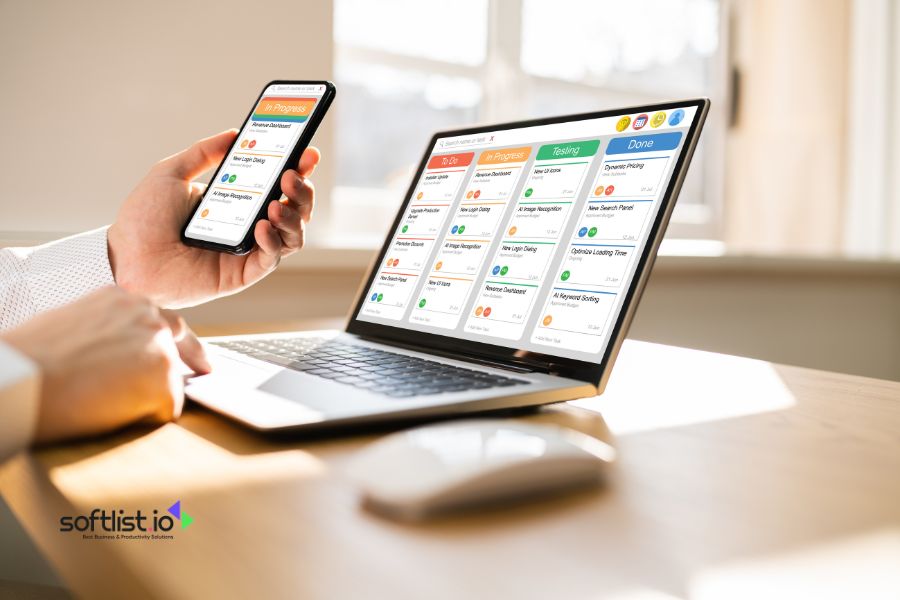
Automated campaigns can save you time and increase efficiency by automating repetitive tasks such as welcome messages, abandoned cart reminders, and re-engagement campaigns. The email marketing software you choose should provide tools for creating and managing automated campaigns, allowing you to set up triggers based on subscriber behavior or other criteria.
The software should also provide easy-to-use tools for creating automated workflows, allowing you to create complex campaigns with multiple triggers and actions.
By choosing email marketing software with the ability to create automated email marketing campaigns, you can streamline your marketing efforts, improve your targeting and engagement, and save time and resources.
Best Email Marketing Software
|
3.5
|
3.5
|
3.5
|
Take Away
Finding the right email marketing and automation software is essential for businesses looking to enhance engagement and streamline communication. With so many options available, understanding the key email marketing features can help you make an informed decision that aligns with your goals.
Does your current platform allow you to personalize email content, run automated email campaigns, and integrate with other tools for a seamless workflow? The best email marketing platforms should offer flexibility, scalability, and ease of use, whether you’re a small business or an enterprise.
If you’re ready to get started with email marketing, now is the time to explore tools that support both email marketing and SMS, giving you a well-rounded strategy for reaching your audience. Choosing the right software can make all the difference in creating effective, engaging campaigns that drive results.
Stay updated on the latest deals and exclusive discounts on selected software—subscribe now and never miss out!
FAQs

How to Choose the Best Email Marketing Software?
Selecting the right email marketing solution depends on your business needs, budget, and the features that streamline your workflow. Look for a platform that offers email automation, customizable email templates, and analytics to track performance. The best options should also provide email and SMS marketing capabilities to enhance engagement across multiple channels.
If you run an eCommerce business, ensure the software integrates with popular eCommerce platforms for seamless customer communication. Whether you need basic email marketing tools or advanced marketing automation tools, a well-rounded platform will help you manage your email campaigns efficiently and improve your digital marketing efforts.
What Is the 80/20 Rule in Email Marketing?
The 80/20 rule in email marketing refers to the idea that 80% of your results come from 20% of your efforts. In practice, this means focusing on high-performing strategies, such as crafting compelling customizable email content and segmenting your audience for better engagement.
A popular email marketing approach is to spend most of your time on nurturing relationships and providing value, while the remaining effort goes into direct sales messages. By leveraging marketing automation tools, businesses can optimize their outreach and maximize results with minimal effort.
What Are the 5 Ts of Email Marketing?
The 5 Ts of email marketing—Targeting, Testing, Timing, Trust, and Tracking—are key principles for successful campaigns. Targeting ensures your emails reach the right audience, while Testing helps optimize subject lines and content. Timing plays a crucial role in engagement, as sending emails at the right moment increases open rates.
Trust is built through consistent, relevant messaging and delivering value to your subscribers. Lastly, Tracking metrics like open rates, click-throughs, and conversions helps you refine your strategy and improve your digital marketing efforts.
How Do I Choose an Email Marketing Agency?
When selecting an email marketing agency, consider its experience, range of services, and ability to provide tailored strategies. The best agencies offer marketing and sales integration, helping businesses connect with their audience through email and SMS marketing. Look for agencies that specialize in free email marketing strategies if you’re just getting started with email, or advanced segmentation and automation if you need more sophisticated solutions.
A strong agency should also help you manage your email campaigns effectively while offering insights on improving conversions. Checking client reviews and case studies can give you a clear idea of how well an agency aligns with your business goals.


